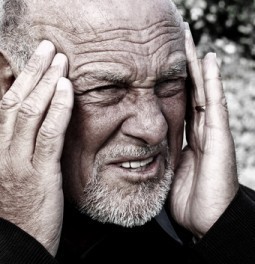Bodhipaksa's Blog, page 13
March 21, 2014
“Being in the moment”
 Over and over again, you’ll hear Buddhist teachers talking about the need to “be in the present moment,” but interestingly this wasn’t something the Buddha emphasized much. There are one or two scattered references that are similar to the concept of being in the moment, like this one:
Over and over again, you’ll hear Buddhist teachers talking about the need to “be in the present moment,” but interestingly this wasn’t something the Buddha emphasized much. There are one or two scattered references that are similar to the concept of being in the moment, like this one:
They don’t sorrow over the past,
don’t long for the future.
They survive on the present.
That’s why their faces
are bright and serene.
In many ways the language of “being in the moment” is useful, because so much of the time we’re unmindfully caught up in thinking about things from the past, or things that might happen in the future. But actually we only have this present moment. Even when you’re thinking about the future or past, you’re focusing on thoughts that are arising right now. You’re always in the present moment.
The problem implicit in what the Buddha says above isn’t actually to do with the past, present, or future, but with how we relate to memories and our thoughts about the future.
First, we tend to get obsessively caught up in thinking. It so happens that much of our obsessive thinking is concerned with things that took place in the past or with things that will or might take place in the future. But it’s also possible for us to obsessively think about the present, like “I wonder what she’s doing right now?” or “I wonder if he doesn’t like me?”
The Buddha tended to treat the past, present, and future in the same way. For example, in verse 421 of the Dhammapada the Buddha says:
He who clings to nothing of the past, present and future, who has no attachment and holds on to nothing — him do I call a holy man.
Certainly, we can think about, say, the future in an anxious way, but we can also think about the future in an objective or metta-ful way. For example the Buddha said things like:
While you are performing a bodily act, you should reflect on it: ‘This bodily act I am doing — is it leading to self-affliction, to the affliction of others, or to both? Is it an unskillful bodily act, with painful consequences, painful results?’
So we’re actually meant to think about the future! Similarly, there are good reasons to think about the past, and the word we usually translate as “mindfulness” is sati, which primarily means “memory.” Our mindfulness can include reflecting on past actions, as with this piece of advice:
Having done a bodily action, you should reflect on it: ‘This bodily action I have done — did it lead to self-affliction, to the affliction of others, or to both? Was it an unskillful bodily action, with painful consequences, painful results?’
So thinking about the future is unhelpful when longing or anxiety are involved, and thinking about the past is unhelpful when there’s sorrow involved, but it’s perfectly possible to think mindfully about the past or future. It all comes down to the quality of attention that you bring to anything you’re aware of. It’s whether craving, aversion, or delusion are present that’s important.
The problem with the language of being in the moment is that often people think there’s something wrong with thinking about the past or future. As we’ve seen, that’s far from being the case — as long as we’re paying attention to thoughts of the past, future (or present!) without attachment, aversion, or delusion. But the false impression given by the language of being in the moment also leads people to think that it’s wrong to have goals and aspirations. Since Buddhist practice doesn’t in fact teach us to “be in the moment” in a literal way, the “problem” of goals and aspirations isn’t in fact a problem at all. Of course we’re to have goals and aspirations. The Buddha was very keen on striving, and his last words were, “Strive diligently.” We’d never make progress if we don’t have goals and aspirations.
What’s important, again, is the quality of attention we bring to those goals and aspirations, particularly regarding whether there is craving, aversion, or delusion involved in them. If we grasp after attaining goals, or experience aversion because we haven’t met our goals, or have goals that are deluded, then that’s obviously unhelpful. But we can also have appropriate goals and work toward them without grasping or aversion.
Related posts:
Six Steps to Living in the Moment
Fake Buddha Quote: “The secret of health for both mind and body is not to mourn for the past, worry about the future, or anticipate troubles, but to live in the present moment wisely and earnestly.”
Taking care of the present moment
Related posts brought to you by Yet Another Related Posts Plugin.

February 26, 2014
New Hampshire can live without the death penalty…?

New Hampshire Coalition to Abolish the Death Penalty
Darkness cannot drive out darkness; only light can do that. –Martin Luther King, Jr.
Related posts:
Spin this!
Stone marker on Dame Road, Newmarket, New Hampshire?
Laurie Anderson, on the death of her husband, Lou Reed
Related posts brought to you by Yet Another Related Posts Plugin.

February 19, 2014
An incredible illustration of interconnectedness
Related posts:
When Google ships V2 in exchange for a V1, do they include new lenses? My dark shades…
A guided meditation #throughglass
Funny!
Related posts brought to you by Yet Another Related Posts Plugin.

Wow! Check this out, and do make sure that you watch right to the end, so that you…
Reshared post from +Jim Weiler
Hot damn.. If you watch, you must hold out until the end (or at least skip ahead). The 75min time-lapse is just… wow..via +Fernando Gonzalez ?

A Hunk Of Planet Dissolves Before Our Eyes
Bye-bye white. Hello bigger (and bigger) blue.
Related posts:
Watch this
What I did during the summer vacation I never had.
On the Way: New Google Glass
Related posts brought to you by Yet Another Related Posts Plugin.

February 18, 2014
A couple of gems found on Doonesbury.com this morning
– Tea Party Nation president Judson Phillips
"The Tom Perkins system is: You don't get to vote unless you pay a dollar of taxes… But what I really think is, it should be like a corporation. You pay a million dollars, you get a million votes."
– Silicon Valley entrepreneur Tom Perkins?
Related posts:
While walking to the office this morning…
I still have three invites
A Buddhist View of Health Care Reform
Related posts brought to you by Yet Another Related Posts Plugin.

February 14, 2014
What an amazing sunset tonight.?

What an amazing sunset tonight.?
Related posts:
Amazing Mars panorama
Amazing Life Magazine Archive on Google
When Google ships V2 in exchange for a V1, do they include new lenses? My dark shades…
Related posts brought to you by Yet Another Related Posts Plugin.

February 10, 2014
Learning to love your suffering
 Buddhism talks a lot about suffering, but a lot of us think that we don’t suffer, or that we don’t really suffer. There’s a tendency for us to think of suffering in terms of physical pain or material deprivation: the person with terminal cancer or a broken leg, the refugee, the starving child. So we often think of suffering as being something that’s extreme or unusual. But actually, we all suffer, every day. You may be suffering right now.
Buddhism talks a lot about suffering, but a lot of us think that we don’t suffer, or that we don’t really suffer. There’s a tendency for us to think of suffering in terms of physical pain or material deprivation: the person with terminal cancer or a broken leg, the refugee, the starving child. So we often think of suffering as being something that’s extreme or unusual. But actually, we all suffer, every day. You may be suffering right now.
When you’re worrying what people think about you, you’re suffering.
When you feel resentful, you’re suffering.
When you’re impatient, you’re suffering.
When you’re embarrassed, you’re suffering.
When you’re irritated, you’re suffering.
When you’re feeling sad, you’re suffering.
When you have regrets, you’re suffering.
When you’re jealous, you’re suffering.
When you’re bored, you’re suffering.
If you look closely at your mental states over the course of any given day, you’ll probably notice that you spend a lot of time dipping in and out of suffering of one sort of another.
And if you look at the people around you, it’s a fair bet that half of them are suffering at any given time. Just notice: how many of them are showing signs of being happy?
I think one reason we deny our own suffering is because we think of suffering as a sign of “failure.” After all, we’re meant to be happy all the time, or so certain messages we receive from society tell us. But if we don’t acknowledge suffering — even our minor experiences of suffering — then we can’t do anything about it, and will continue to go about life in a sub-optimal emotional state.
So I suggest that we notice experiences of suffering, and we accept the fact of our own suffering. There’s no point fretting about the fact that we suffer; it’s not a sign of failure. It’s just a part of the experience of being human, and a fact to be acknowledged. And once we’ve acknowledged and accepted our suffering, we can start to do something about it. In particular, I suggest wishing our suffering well. Drop lovingkindness phrases into your mind — “May you be well; may you be happy; may you be free from suffering.” Just notice your suffering, give it your compassion. Love your suffering, and see what happens. You might find that once you’ve given compassion to your own pain, it’s natural to notice the suffering around you, and to respond compassionately to others.
Related posts:
What is suffering? (Day 31)
The Urban Retreat, Day 8: Developing compassion
Compassion as an antidote for our own suffering (Day 45)
Related posts brought to you by Yet Another Related Posts Plugin.

January 31, 2014
Today’s pictures from the Lamprey River

Today's pictures from the Lamprey River?
Related posts:
More photos from the Lamprey River
How to take really bad baby pictures
Related posts brought to you by Yet Another Related Posts Plugin.

Today's pictures from the Lamprey River?

Today's pictures from the Lamprey River?
Related posts:
More photos from the Lamprey River
How to take really bad baby pictures
Related posts brought to you by Yet Another Related Posts Plugin.

January 30, 2014
More photos from the Lamprey River

Taken today on a short break from work.?
Related posts:
Another “Living as a River” interview
A guided meditation #throughglass
Related posts brought to you by Yet Another Related Posts Plugin.


















